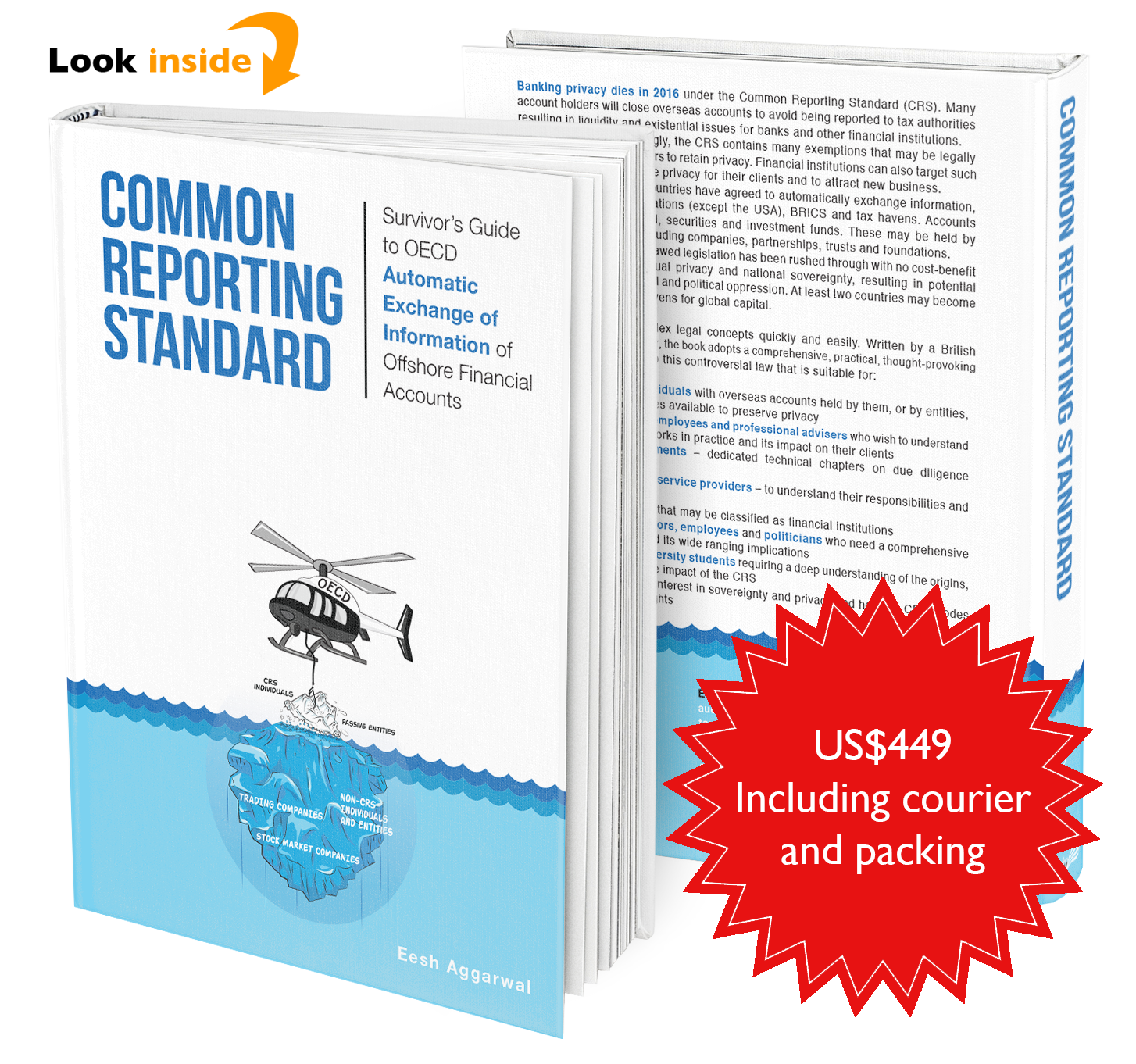COMMON REPORTING STANDARD
Survivor's Guide to OECD Automatic Exchange of Information of Offshore Financial Accounts
by Eesh Aggarwal FCA TEP
- Hardcover: 690 pages
- Publisher: SOCTA Publications Limited, London, UK
- ISBN (hardcover): 978-1-911236-00-9
- Language: English
- Shipping Weight: 3 pounds.
Hardback available for US$449.00 (PayPal)
Paperback available for US$299.00 (createspace.com)
ABOUT THE BOOK
Banking privacy dies in 2016. Many account holders will close overseas accounts to avoid being reported to tax authorities resulting in liquidity and existential issues for banks and other financial institutions.
Are you ready? What strategies do you have to maintain privacy and survive the Common Reporting Standard (CRS)? Surprisingly, the CRS contains many exemptions that may be legally exploited by account holders to retain privacy. Financial institutions can also target such exempt accounts to ensure privacy for their clients and attract new business.To fight tax evasion, 99 countries have agreed to automatically send offshore bank account details to overseas tax authorities including virtually all western nations (except the USA), BRICS and tax havens. Accounts reportable include banking, custodial, securities, investment funds and certain life insurance contracts. Such accounts may be held by individuals or entities, including companies, partnerships, trusts and foundations.Politically motivated and flawed legislation has been rushed through with no cost-benefit analysis and a negative impact on individual privacy and national sovereignty, potentially leading to global data theft, kidnapping, blackmail and political oppression. At least two countries may become major beneficiaries as havens for global capital.
Readers will grasp complex legal concepts quickly and easily. Written by an international tax practitioner, the book adopts a comprehensive, practical, thought-provoking and engaging approach to this controversial law that is suitable for:
- High net worth individuals with overseas accounts held by them, or by entities, and practical strategies available to preserve privacy
- Financial institution employees and professional advisers who wish to understand how this legislation works in practice and its impact on their clients
- Compliance departments – dedicated technical chapters on due diligence requirements
- Trust and corporate service providers – to understand their responsibilities and effect on clients
- Holding companies that may be classified as financial institutions
- Government regulators, employees and politicians who need a comprehensive grasp of the CRS and its wide ranging implications
- Academics and university students requiring a deep understanding of the origins, operations and future impact of the CRS
- Individuals with an interest in sovereignty and privacy and how the CRS erodes such fundamental rights
ABOUT THE AUTHOR

Eesh Aggarwal is a UK chartered accountant and auditor with over 20 years experience in international tax planning and compliance for a global client base including individuals and corporates.
He is a sought-after speaker internationally and has lectured in various institutions including the London School of Economics. He provides bespoke consultancy services and in-house teaching for institutions.


